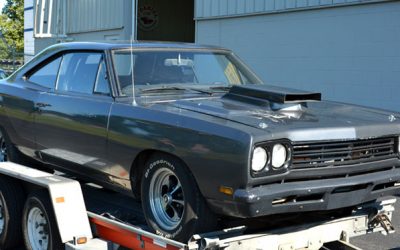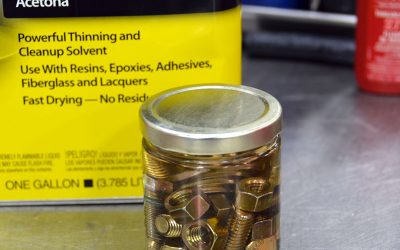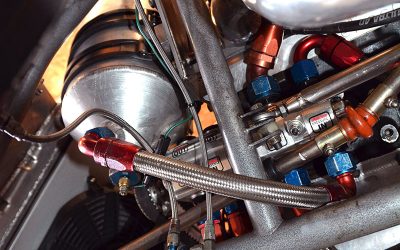According to studies by the University of Michigan, only about 60% of today’s teenagers between 16 and 19 have a driver’s license. What??? I was bugging my dad beginning at 15 to get into driver’s ed by 15 and a half so I could be licensed by 16 years and one day old! A day later I was cruising the streets in my white over bright red 1962 Buick Invicta convertible. And now nearly half of the 16 to 19 year olds don’t even have a license?
Expense is often the reason given, but bike paths, Uber, public transportation, and the unrelenting drumbeat of the propagandists have made car ownership politically incorrect. A litigious society where every person believes that there ought to be perfect outcomes has made car insurance unaffordable. A government that believes that it can make privately-owned transportation absolutely safe and environmentally sound has made “affordable used cars†an oxymoron. And God forbid young people should work and contribute to their own freedom and growth. What was once a grand celebration of freedom — a stake in the ground to mark the time when we began our transition from kids to young adults — has been rendered irrelevant; a rite of passage that belongs to days gone by. Now we emphasize the collective at the expense of the individual as we strive to become “individuals†that all look and act the same. Damn near every youngster is tattooed, pierced, and walking to wherever they go. They all claim to be different, but they all look and act the same.
We celebrate our conformity, our sameness, and our mediocrity. We hold the same opinions, worry about being nice, and strive to not hurt anyone’s feelings — without regard to the fact that sometimes having your feelings hurt is just the right thing to have done to you. Sometimes you’re just being a dope and you need to have your feelings hurt. Our schools have failed us miserably, critical thinking is a lost art, and parents have been duped into believing that having two incomes is better than spending time with or raising your kids. I could make a comment about how we are encouraged to have two incomes to increase tax revenue and how the state is better at raising our kids than we are, but then I’d just sound like a loon.
With parents exhausted from long days at work, there’s just no time to imprint your children with your values. So, that’s left to Those Who Know More Than You and Have Your Best Interests in Mind. Not that I’m cynical…
Unintended Consequences
I was having a discussion with a young person not too long back about the Right to Repair movement and the prodding that they were doing to the auto manufacturers. If you aren’t familiar with RTR, it’s a bunch of automotive service organizations that are concerned that the repair information on late model cars will be withheld from the aftermarket shops, driving the repair business back to the dealerships. It’s sold under the heading of “competition and consumer choice,†but it’s really driven by self-interest. Not that that’s a bad thing, but running solely under the banner of consumer choice is a canard.
I was attempting to explain how old the concept of RTR was; that it was extensively discussed during the Bad Old Days of the Clean Air Act of 1990 (which launched OBD II and all its unique troubles); that a lot of people had done a lot of work to ensure the cooperation of the manufacturers and a universal delivery system. This was before the days of a reliable Internet (hard to believe, isn’t it?), but the Internet was recognized as a concurrently developing technology that would ensure a delivery mechanism to all who needed accurate repair information. This youngster immediately started telling me how stupid I was and the conversation ended abruptly (I have a low tolerance for stupidity myself), but it’s revealing in a couple of ways. One, few know or remember how things evolve these days. Everyone lives in the moment. And, two, there are always unintended consequences; unknown unknowns that slowly become apparent. My comment to the youngster was to tone down the confrontation because that might generate resentment and cause others to actively work against his agenda, but he was so self-righteous he couldn’t understand the point.
So, the other day I spotted a news piece about GM issuing a statement referencing its on-board software; it’s floating the idea that when you buy the car you license the software — you do not own it or purchase it — it remains the intellectual property of GM and the corporation allows you to use it to operate your vehicle. If you are unaware of it, your vehicle will not operate at all without this software. Not the engine, not the accessories, not even windows and door locks anymore. I believe this is a response to the prodding that the aftermarket has been giving the manufacturers in regards to demanding that repair information be made available to all who repair vehicles. I think the manufacturers will conduct a vigorous defense of their product under two headings — intellectual property rights and liability concerns — and I think they’ll prevail. If you think about it, this will eventually affect both the repair business and the collision business if a case can be made that there are repair practices conducted outside the controlled environment of the manufacturers’ business partners might result in the manufacturer being held liable for safety-related problems arising from those repairs at some later date.
Under the same heading is what I see happening with directed repair processes. Again, for the uninitiated, on the commercial side of car repair we have for some time now been testing and repairing cars using a directed repair process or flow chart. Basically, you identify a fault or trouble code, go to a flow chart that says test this, then this, if you get this value do this next, if you get that value do this other thing next, and so on until you run the trouble tree to its end and replace the part you are directed to replace. You have very little information about how things ought to work and why; you just have this nifty little trouble tree that tells you what to do and what part to replace. If that fails, you call the technical assistance center and they tell you what part to replace. The unintended consequence of this process is that mechanics today are getting dumber and dumber. They don’t know how something works, don’t understand fundamentals, and can only read and follow directions. God help them if the directions don’t fix the car.
At a time when other professions have paralegals and paramedics, we are long overdue for para-engineers. We need to start thinking about what the future brings and we need to stop playing checkers in a world that is playing chess — we have to start thinking six moves out.
We have to start thinking about whether our culture is worth saving and how we should respond to all those unintended consequences that are going to start popping up because eventually it’s going to bleed over into the performance industry and our hobby. Maybe what we see on the commercial side will help us formulate a plan to preserve the work we all love to do on the performance side.





0 Comments